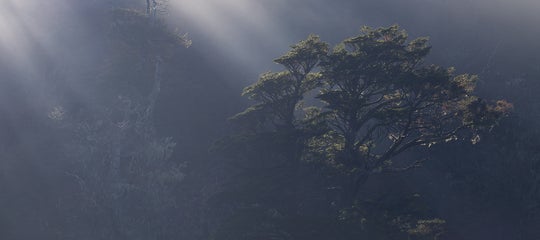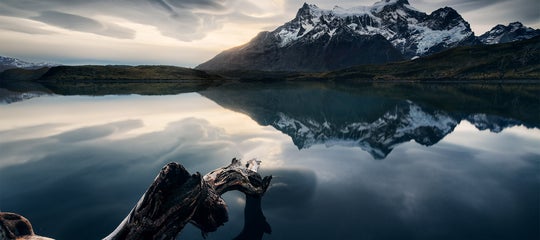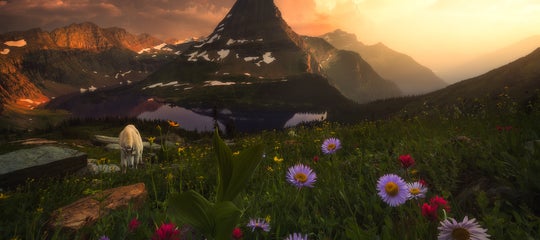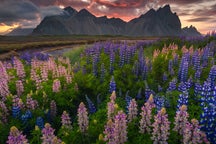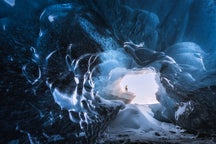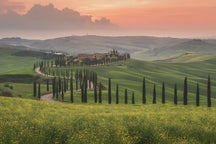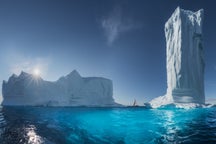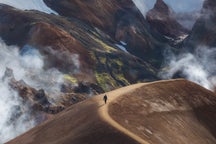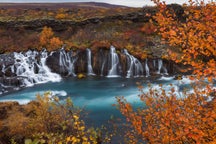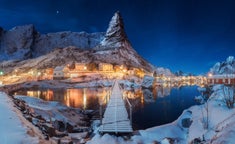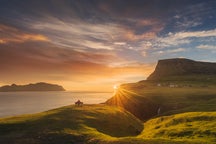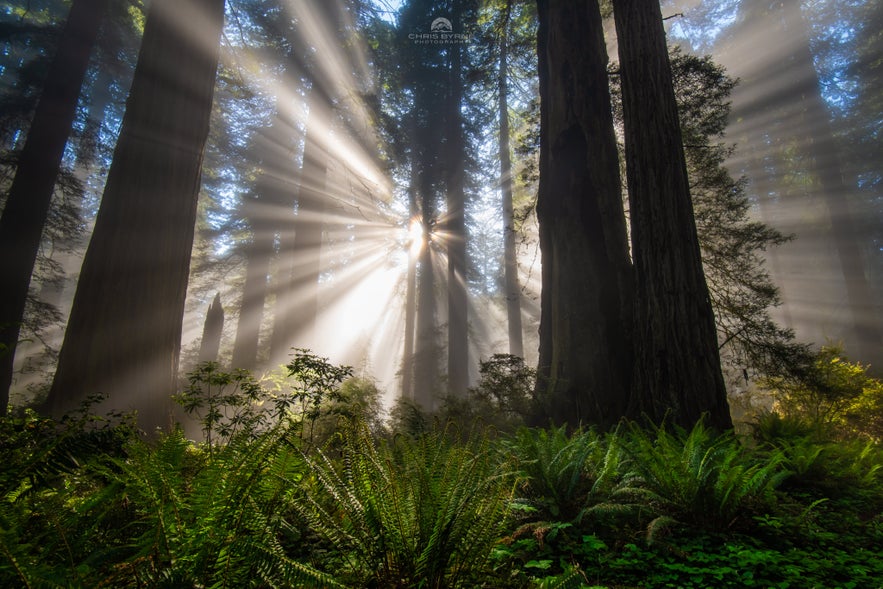
For most people, landscape photography is a hobby that slowly infiltrates their lives until it becomes a deep-seated passion. US-based photographer, Chris Byrne, is no exception to its charms.
- Discover How to Use Smartphone Camera Modes for Amazing Landscape Photography
- Check out these Portugal Photo Tours and Workshops
- Learn about 15 Places in the World That Every Landscape Photographer Has to Visit
Having made the leap from a corporate job into pursuing photography as a career, Chris now spends his time teaching others how to take stunning photographs when out in nature. This week, we had a chat with Chris about how he transitioned into photography, some of the influences behind his work, as well as his thoughts on the consumption of images through social media.
 Chris Byrne is a landscape photographer based in the USA. Photo by: 'Chris Byrne'.
Chris Byrne is a landscape photographer based in the USA. Photo by: 'Chris Byrne'.
Hello Chris, thanks for joining us! For those who are unfamiliar with your work, tell us a little bit about yourself. Who or what inspired you to take up photography?
When I was a kid my family would take trips all over the place. A lot of national parks, some abroad, and my father was always buying the latest and greatest all in one point in shoot camera. I remember there being a few Minoltas in there. And so occasionally I’d get my hands on it and take some photos. Then in college I took a photography class and learned the basics of using a film camera and developing photos in the darkroom. But I studied another field and later moved to Philadelphia after school for my job working in the stock market. I kept photography as a hobby just as digital cameras were coming about and I would go out photograph all of the wonderful historical landmarks in Philly. I did a lot of night photography then and loved playing with long exposures to bring the city to life in the middle of the night. Later on I took a trip to Glacier National Park, Yellowstone and the Grand Tetons with my wife where my trusty Fuji Finepix camera died. It was just as well because the photos that I was getting just weren’t doing the magnificent landscapes any justice. So I decided that if I was going to replace my camera with a new DSLR then I would fully immerse myself in getting better at photography and then it just snowballed from there.
 Photography began as a hobby for Chris. Photo by: 'Chris Byrne'.
Photography began as a hobby for Chris. Photo by: 'Chris Byrne'.
Describe the moment that you decided you wanted to become a professional photographer. What are the greatest challenges of making a living as a photographic artist? What are the keys to succeeding at it?
Well there wasn’t a single moment. I was never very good at being an employee and working for somebody else. But until I found photography I didn’t really have any other options to get out of the corporate grind. This is going to sound a bit morbid, but I guess gradually over time and then quite quickly I came to the realisation that someday I’m going to die. I don’t know when or how, but it’s going to happen. And I did not want to spend my time on this planet grinding away at a desk job doing work that I didn’t care about for somebody else. There wasn’t a specific event that made me realise this. But when I did, I began immediately to plan my escape from the corporate world. And the more that I did photography, the more that I fell in love with the craft and being outdoors, and I put everything I could into making it a career.
 Chris has put everything he has into making a career out of photography. Photo by: 'Chris Byrne'.
Chris has put everything he has into making a career out of photography. Photo by: 'Chris Byrne'.
I would say the greatest challenges in earning a living are being a business minded person. It is not so much about creating pretty photos as it is about marketing those images and targeting audiences that want your product. A lot of creative minded people are just not good at the business side. And many photographers think that they can put up a website or post to instagram and the customers will file right in. That just isn’t how it works. There are soooooo many photos posted daily on the internet, especially instagram, and great photographers very often get lost in the crowd. I am on social media because I have to have an address there for people to see my work. But I don’t count on getting business from Instagram and direct my marketing efforts elsewhere.
 You need to be business-minded to make a living out of photography. Photo by: 'Chris Byrne'.
You need to be business-minded to make a living out of photography. Photo by: 'Chris Byrne'.
It’s also important to understand that behind social media is an algorithm sharing photos based on people’s reactions and who knows what else. It’s a computer deciding what to share to who and when. So if you are on those platforms and don’t get the traction that you think you should or get jealous over the size of other people’s accounts, likes, etc, that it really doesn’t say a thing about the quality of your own work. I see a lot of people that get sucked into this and change their style to what will be popular on Instagram, as if that’s the magic potion to success. The truth is that hard work takes time, and building a business is hard work. And patience and perseverance are two of the most important qualities to create a good business. And both of those happen to apply to being a good nature photographer as well.
Are there any photographers who have influenced your photographic style and your career?
I draw inspiration from all kinds of photography. There was a period where I was shooting concerts and thought that was what I was going to do with my camera, so guys like Danny Clinch and Jay Blakesberg were influences. But as far as landscapes and nature goes I would have to say Art Wolfe for his variety of subjects, Sebastiao Salgado for his beautiful and vast landscapes, Tom Mangelsen for his wildlife and of course Ansel Adams. There are so many younger photographers too that are just killing it and inspire me daily. Too many to name.
- See also: Ultimate Guide to Luminar by Skylum
What do you take with you on a photo shoot? What equipment or camera do you typically use?
I use Nikon camera gear, Really Right Stuff tripods, and PolarPro filters. Specifically I’m shooting with a Nikon D850 and 14-24mm, 16-35mm (easier with filters), 24-70mm, 70-300mm and a 60mm macro lens that I just love. I also have a DJI Mavic 2 drone that doesn’t get enough love from me in the field.
 Chris uses Nikon gear for his photography. Photo by: 'Chris Byrne'.
Chris uses Nikon gear for his photography. Photo by: 'Chris Byrne'.
- See also: Interview with Alexandre Deschaumes
Describe the photography techniques that you like to use for your images.
I’m doing a lot more bracketing these days than I ever have before and shooting more panoramas intentionally in the field. My camera has great dynamic range but I like the idea of seeing right away what an underexposed sky might look like for example. Which then gives me some options and ideas in my processing workflow. As for the panos, our eyes naturally see the world that way in a wider view and those panorama ratios of 2 to 1 and 3 to 1 simply fit better over a couch or a bed when selling large prints to people. As for processing techniques, I am always learning new tricks. I still buy tutorial videos to see how other people are doing things. There’s more than one way to skin a cat, especially in editing photos. You can always learn something in the craft of photography, it’s a journey without an end destination in my opinion.
 Learning photography is like a journey without an end. Photo by: 'Chris Byrne'.
Learning photography is like a journey without an end. Photo by: 'Chris Byrne'.
What qualities do you think a landscape photographer should possess?
Patience is key. So many times you can go out shooting and get nothing for various reasons. And that is OK. Each time you go to a specific place you might not come away with a photograph to hang on the wall but you still learn something about that landscape, or at least you should. Whether it’s what direction the light comes and what time, or how hard a hike is and the actual weather conditions. All that information is useful to capturing an image at the critical moment when you are in the right place. So many people these days in instagram land just have to get a shot when they take a trip. And a lot of times, those photographs are forced or even faked just to get something for the gram. I might sound like a jerk but I don’t even consider a lot of that stuff photography. If you are putting things in your photos that aren’t there in the field then it’s digital art. Even if you took all the photos that you’re using. Which is perfectly fine, just admit it in your captions so people aren’t chasing ghosts when they get to the same location.
 Chris believes it is 'digital art' when photographs are manipulated to include things that weren't there at the time of them being taken. Photo by: 'Chris Byrne'.
Chris believes it is 'digital art' when photographs are manipulated to include things that weren't there at the time of them being taken. Photo by: 'Chris Byrne'.
- See also: 13 Amazing Summer Photography Ideas
What do you believe makes a successful photograph?
The best photographs grab your attention and then keep you lingering around the image for more. It’s hard to describe exactly how to create that, subject matter is a big component, but you know it when you see it.
What is the narrative that you hope to convey with your images? What do you hope viewers take away from your photographs?
I want people to see my photographs and wish they were there. Or wish they could be there and that these lands or animals must be protected. I believe that nature is good for the soul and people should get out and adventure responsibly as often as they can.
 Chris wants people to look at his photographs and wish they were there. Photo by: 'Chris Byrne'.
Chris wants people to look at his photographs and wish they were there. Photo by: 'Chris Byrne'.
Can you tell us about the most memorable photo that you ever shot and what made it so special?
It wasn’t one photograph, but a series of aerial images that I took in Iceland. I rented a tiny four seater plane to get above the braided rivers in the Highlands. It was something that I wanted to photograph for a number of years. However, I’m kind of afraid of heights and flying. Any turbulence on a plane and I’m as white knuckled as they come. And I really had no idea what to expect except for a bumpy ride. And when I got in the plane and the pilot fired up what sounded like a lawnmower engine my heart really started to race. But surprisingly once we took off it was like a hang glider (not that I’ve been in one of those either). We were just floating along kind of slowly and smoothly bouncing and I was so comfortable that I extended the flight time twice cause I was enjoying shooting the landscape from that vantage point so much. I had the plane to myself and could just slide from one side to the other to get my shots out of the tiny portholes. I ended up placing pretty high in a couple high profile photography competitions with those images as well which was icing on the cake.
 There are many memorable moments that we experience as photographers. Photo by: 'Chris Byrne'.
There are many memorable moments that we experience as photographers. Photo by: 'Chris Byrne'.
What are your thoughts on the societal consumption of images? Do you think there are any pitfalls to over-consuming imagery in terms of how we perceive and relate to objects or nature?
Well I alluded to this a bit, there are so many photographs posted daily on social media that it’s difficult to stand out from the crowd. So it seems that more and more people are doing whatever is necessary to create eye candy for Instagram. Whether it’s way over the top processing or creating complete fantasy landscapes that don’t even exist. With the end game being more likes? For what exactly, who knows. But the biggest pitfall to that being it’s simply hard to impress people these days. They see so much online and then go to a beautiful place in person and are disappointed. Because it doesn’t look like the photo that they took a screenshot of. It’s an endless comparison game which I do believe can diminish someone’s enjoyment of nature if they are out there for the wrong reasons. I think Teddy Roosevelt said it best, "comparison is the thief of joy”.
 Chris believes it is difficult to stand out from the crowd with images of well-photographed locations. Photo by: 'Chris Byrne'.
Chris believes it is difficult to stand out from the crowd with images of well-photographed locations. Photo by: 'Chris Byrne'.
- See also: 11 Tips for Amazing Autumn Photography
You guide a number of photography workshops and tours throughout the Pacific Northwest of the USA. Tell us about these and what people can expect when they sign up to go on an adventure with you.
I am going to wear you out! And you’ll love it. The goal of all my workshops is to get people in the best locations possible, whatever it takes to be safe and get great photographs. We just wrapped up a workshop in Glacier National Park, Montana and due to COVID had to change our accommodations from one side of the park to the other. This added quite a bit of driving time but none of our clients complained. We would get back after midnight and be out the door again at 4am. No exaggeration everyone was running on three hours of sleep each night and getting a nap in the afternoon to catch up. And everyone was happy to be out catching the best light of the day. Now that certainly isn’t the norm but our group was excited to be there and rolled with the changes. The truth is that people still want an escape, more now than ever. And to be responsible about the virus when traveling. We are a number of months into this now and people have made up their minds and get the reality of the situation. But it isn’t going to stop many people from living their lives and every single person that came out with us was glad that they did as it helped them feel kind of normal for a week doing what they love.
- See also: Interview with Páll Jökull Pétursson
You’re due to guide a photography workshop in Iceland with another incredible landscape photographer, John Weatherby. Given the current travel restrictions with COVID-19, how will this workshop be impacted? If it does go ahead, what can photographers hope to shoot, besides the Northern Lights and ice caves?
Given the short time period we have now, how the USA has handled this virus, and the uncertainty around travel from the USA, this workshop will very likely have to be cancelled which we are very disappointed about. BUT if we can somehow pull it off we will be traveling along the southern coast end to end. Last year we ran our group pretty hard, chasing the lights and driving 2-3 hours each night in search of clear skies. Our clients were downright giddy on many nights shooting the aurora! We pushed this workshop back to November for longer nights (and hopefully more sleep) and I’m sure it will be another great adventure if we can make it happen. That’s a big if right now though.
 Many photography workshops are currently on hold due to COVID-19. Photo by: 'Chris Byrne'.
Many photography workshops are currently on hold due to COVID-19. Photo by: 'Chris Byrne'.
- See also: An Introduction to Drones
How do you juggle environmental concerns when guiding a photography workshop?
My goal is to instil a sense of responsibility with my clients. It isn’t always about getting the shot. We stay on paths and spread out when bushwhacking so we don’t create new ones. I do what I can to make my clients think about being better stewards of nature while creating beautiful imagery. It helps that nature photographers already have a greater appreciation for the landscape so nudging them in a direction and explaining good practices sinks in a bit easier than the general public.
 Chris has a goal to instil ra sense of responsibility with his clients. Photo by: 'Chris Byrne'.
Chris has a goal to instil ra sense of responsibility with his clients. Photo by: 'Chris Byrne'.
- See also: Interview with Michael Shainblum
Thank you for sharing your thoughts with us today. Finally, if you could share some words of wisdom or your top photography tip, what would it be?
My advice is simple and it is this: You don’t know unless you go! You can look at all the weather apps and do as much research as you want on a place. But at some point you just need to pack your bag and go see for yourself. I take all weather apps with a grain of salt as so often the forecasts have looked undesirable but I’m there anyway and end up with some surprising and beautiful conditions. And I’d rather be outside with crappy weather trying to find something to photograph than inside staring at my phone under the fluorescent lights any day of the week!
For more information on Chris Byrne's work, you can visit his website or find him on Facebook and Instagram.
Learn to take amazing landscape photography just like Chris! Check out our range of international photo tours and photography workshops.


